
Developer: La Cosa Entertainment
Publisher: La Cosa Entertainment
Platforms: PS4
Tested on: PS4
KLAUS – Review
KLAUS is a challenging yet ingenious 2D puzzle game developed by La Cosa Entertainment for PlayStation 4. The minimalistic uni-colored visuals might not offer much but the developers have found a clever use of the DualShock 4 controller’s features such as the touchpad and integrated speakers, making the game strikingly unique in every aspect.
Story
The protagonist in KLAUS wakes up in a basement with no recollection of who or where he is. The only clue that was left behind was the word “KLAUS”, tattooed on his arm. Is it his name or does the word have another meaning? He’s not sure and neither are you. Stuck in the basement, almost like a prisoner, he begins to wander around to find exits, hoping to escape whatever his cage is. However the basement is unlike any other regular basement. Filled with traps, spikes and other mechanical constructions, the protagonist finds himself in a sticky situation more often than not.
Both the protagonist and a second playable character named K1 are aware of the player playing the game and helping them by interacting with the environment where they can’t do anything. This sort of interacting allows the player to explore the storyline at the same pace as the protagonist as both are not aware of what lies ahead or what has happened in the past.
Graphics
The visuals are very minimalistic but the extremely simple graphics and decorations found in each room are striking nonetheless. It’s cartoon-styled view of the world is a mixture of Don’t Starve and Thomas Was Alone without really borrowing the aesthetic aspects of either game. While at first the vibrant color scheme feels like an attack on your eyes, you’ll grow used to the uni-colored levels fairly fast. Eventually you’ll see the charm in the simplistic uni-colors each floor or secret level has to offer.
Sound
The ambiance sound in KLAUS is perfectly on par with the general theme of the game. Although it is on a loop, it’s not disturbing because the developers have found an excellent use of the speakers in the DualShock 4 controller. The game doesn’t offer voice-overs of any kind, at least not when it comes to the character or the narrative. However the character voices his frustrations and questions by grunting inaudible sounds via the DualShock 4 speaker, allowing the player to feel more close with the game and its intriguing protagonist. Interestingly enough, the protagonist interacts with the player not via verbal expressions but rather via short texts that pop up as you advance in the game.
Gameplay
The protagonist is moved by the left D-pad while he can jump with X and hack computer systems with square. Running fast is easy with the L1-button while double jumps require two taps of the X-button. These are somewhat of the basic controls of almost all games. However KLAUS also offers tight and intuitive controls in combination with a clever usage of the DualShock 4’s touchpad. While other games have certainly tried the same combination, it was never as integrated with the overall mechanics like this.
In total there are six worlds or floors to explore, each with several levels and sections per level, good for a total of 34 levels and more than a hundred rooms to discover. At the end of each floor, the protagonist will relive a memory that will advance the storyline. Each room is filled with deadly traps, tricky foes and puzzles that require direct interaction with the provided objects. The latter one is mostly done with the touchpad. When the touchpad has locked on a certain object, you can move the object simultaneously with the character which can be a tad tricky at first but mastering it is easy. Luckily the puzzles are not too complex and completing a level can be done within a time frame fitting a casual gamer perfectly.
The game features a second playable character, the brute named K1. Klaus and K1 combine their weaknesses and strengths to advance even further in the game by using K1 to punch through barriers and fly around rooms with his ripped T-shirt. You’ll need to switch between the characters at the right moment but at times the game requires you to control both characters simultaneously as well. Again, another tricky feature to learn but as the game requires simultaneous movements rather often, you’ll get the hang of it through trial and error eventually.
Throughout the game, you’ll be able to find secret areas that throws all previous rules of the game out of the window, showcasing new mechanics and creating an entirely new experience each time you find a secret level. In one, players can only go left thus deadly traps can only be avoided by using the environment accordingly while in another gravity is almost non-existent. Other levels feature mini-puzzles where the protagonist must not do anything except wait for the player to complete the puzzle.
Not entirely unique but still a great feature nonetheless is the fact that the protagonist is aware of the player’s presence. Without the voice-overs it might seem a tad silly but the interaction is clear and will cause for some great gameplay twists where the protagonist completely ignores your “commands”. This type of self-aware experience allows the player to feel like an active participant of the game and this experience is heightened by the usage of the controller’s speaker, giving the delusion that the character is close to the player.
Conclusion
Although the puzzles are not complex, KLAUS still offers a challenging gameplay by combining various mechanics at once such as the simultaneous control of two characters or by moving objects with the touchpad. The tight controls can be ruined slightly by the non-intuitive touchpad but the latter feature is well integrated in the overall mechanics of the game meaning it’s only a slight discomfort for some players. All-in-all KLAUS is a stunning game in its genre and it sets itself apart by boasting a great narrative, a stunning uni-color world and gameplay twists that breaks the game’s very own rules every once in a while.
KLAUS - Review,
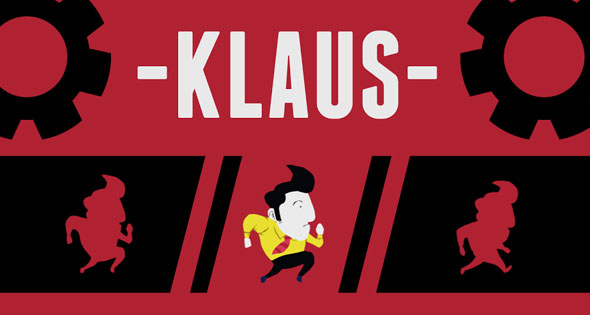
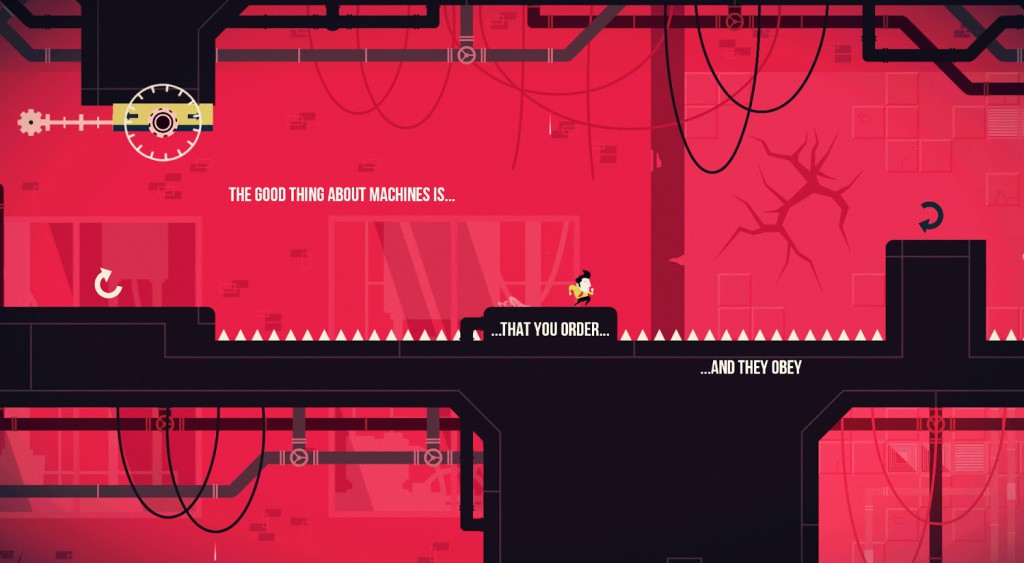
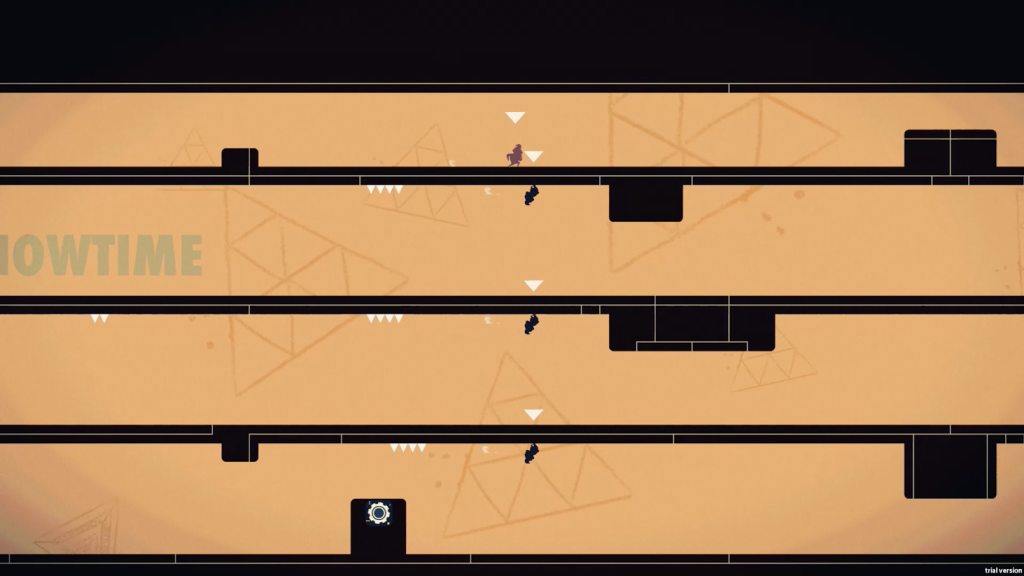
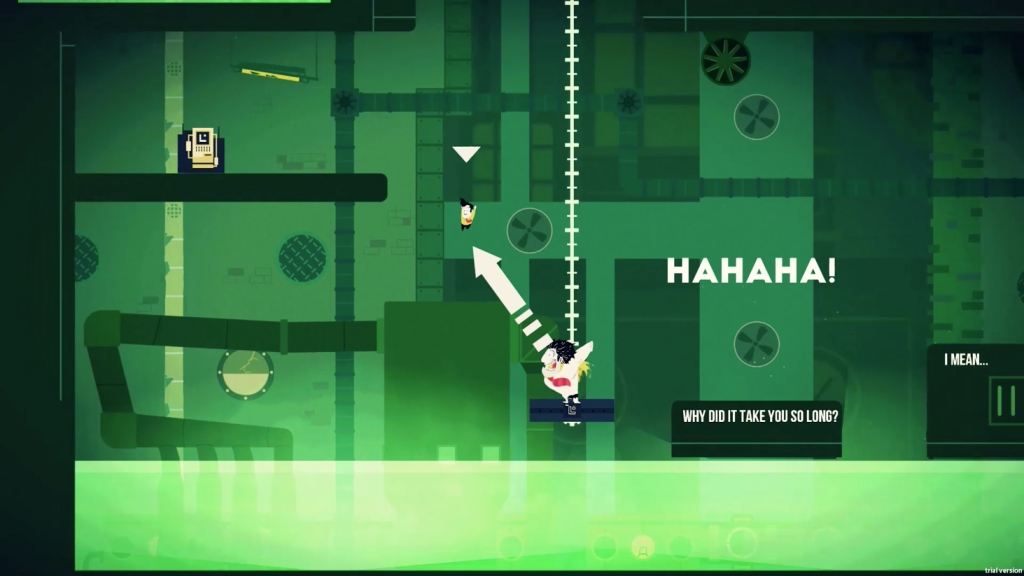
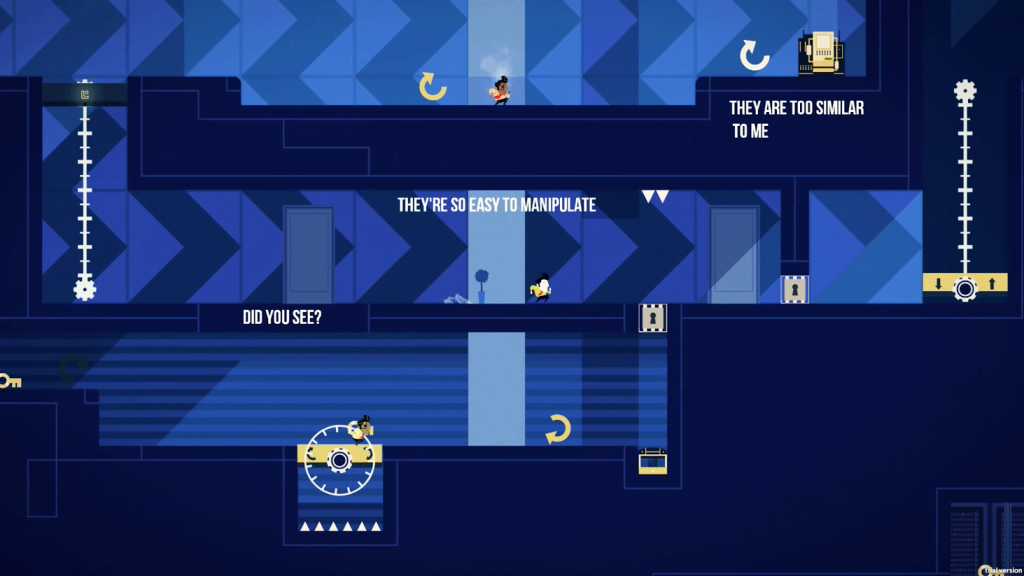




No Comments